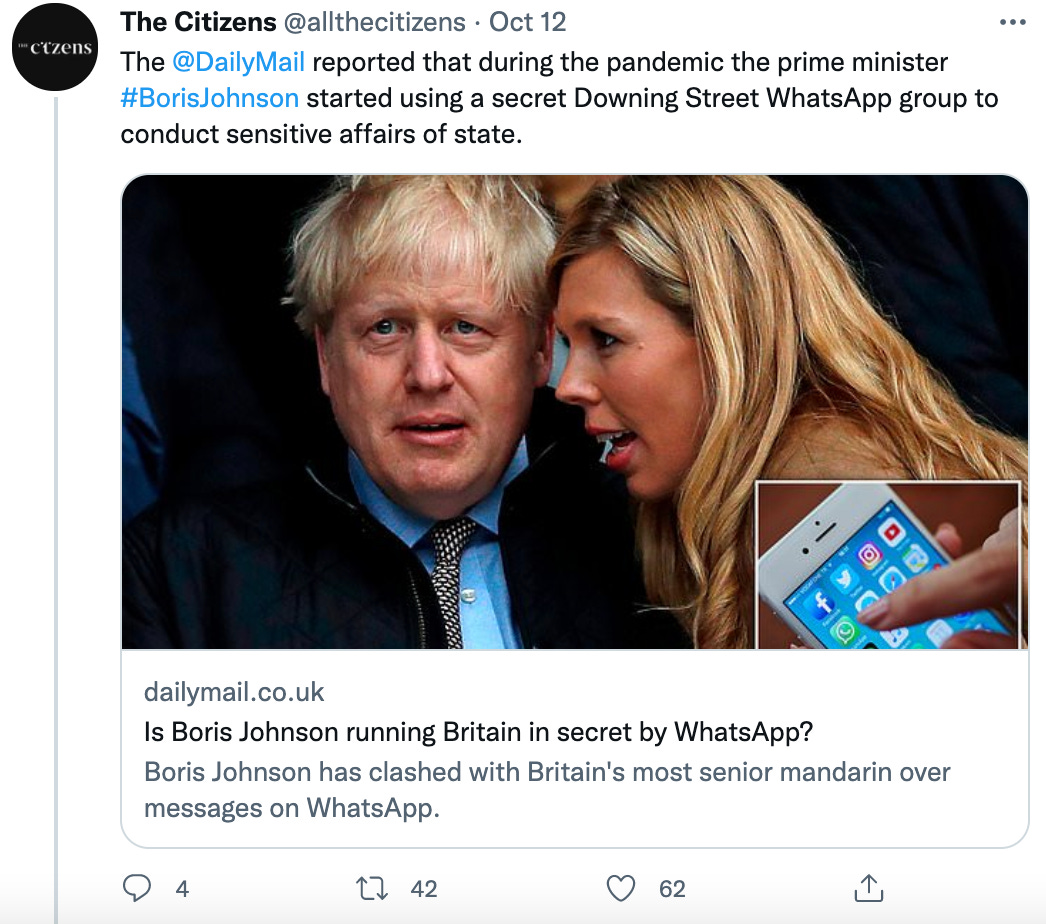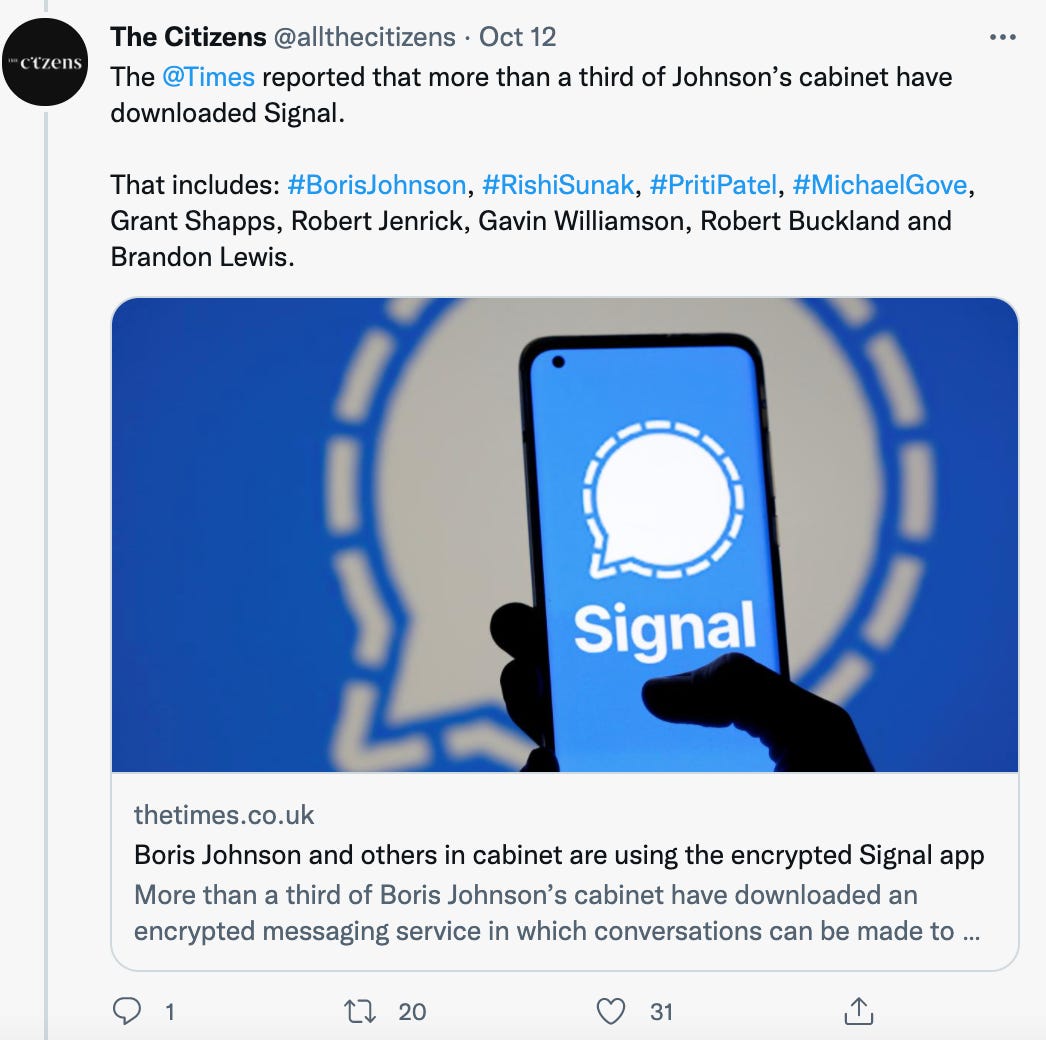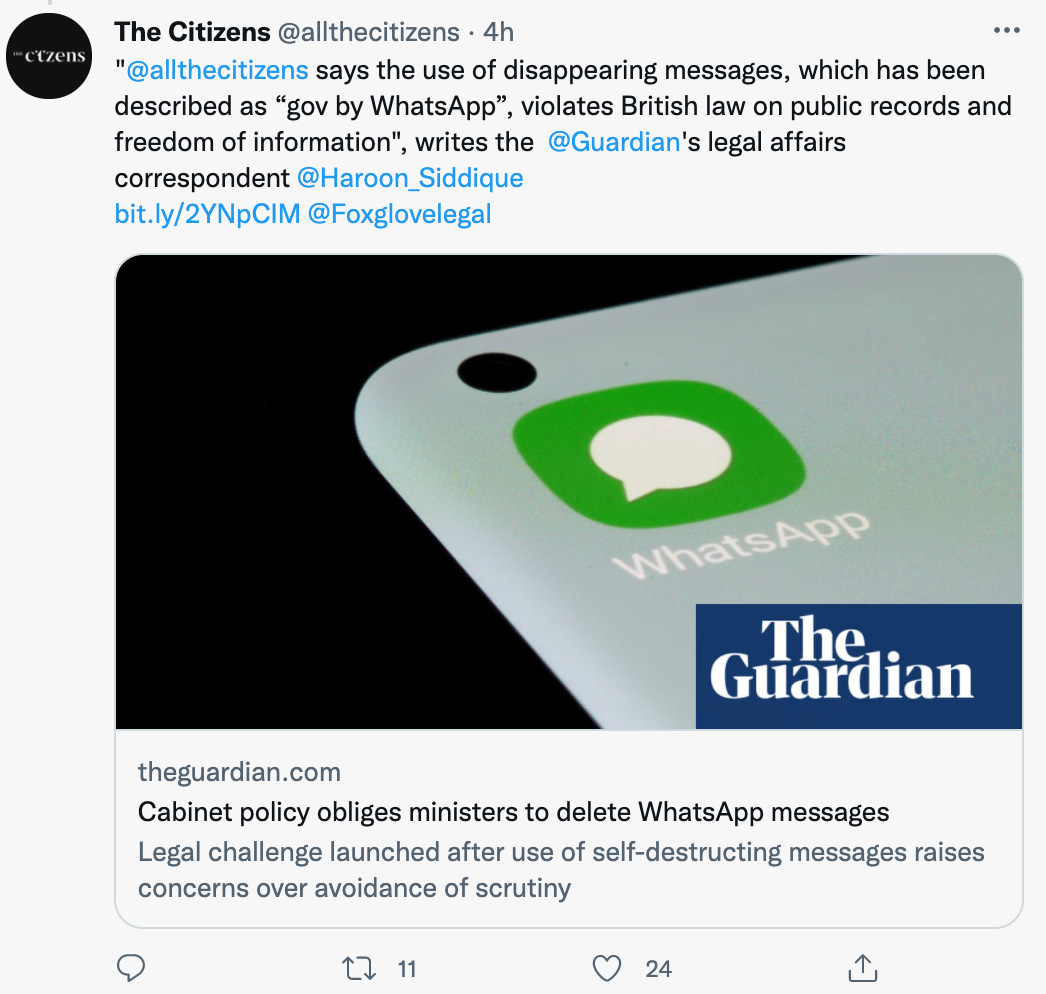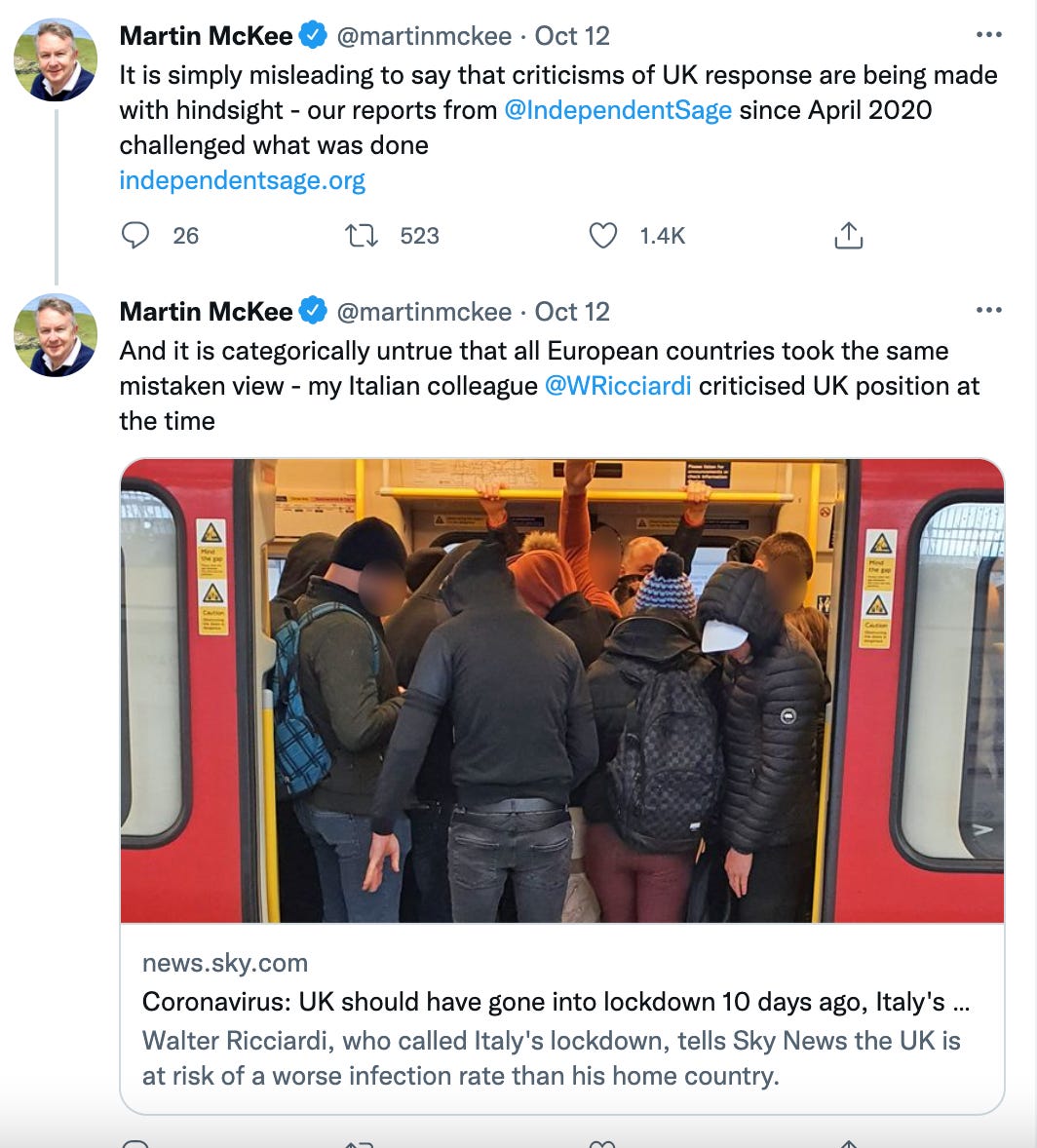'You can't learn from history if it's been deleted'
The Citizens celebrate an important milestone in our legal challenge to hold government to account
Welcome to Keeping the Receipts— a newsletter from the Citizens, this week written by Joanne O’Connor. You can read about the mission behind this here.
If you like what you see, consider forwarding it to a friend or two. And if you’ve been reading it for free and want to support our mission, please consider signing up to the paid version.
On Tuesday, the House of Commons released a report, ‘Coronavirus: lessons learned to date’, the result of a cross-party examination of the government’s response to the pandemic so far. Contained within its 150 pages is a litany of mistakes, missed opportunities and incompetence, which together constitute the UK’s “worst public health failure ever”.
Just hours after the report was published, we were at the high court for a permission hearing, the latest stage of our legal challenge, with our partners Foxglove Legal, against the government’s use of disappearing Whatsapp messages to conduct official business.
On the surface the two events are not connected, but of course they are. Because they both come down to the issue of transparency. And what this new report has shown, above all else, is that scrutiny of the government has never been more important.
It’s been a long journey to get to this point, one which started two years ago when journalist Iain Overton, now our head of investigations, sent an FOI request to the Cabinet Office asking whether special advisers within No.10 were using encrypted software apps such as Whatsapp and Signal to conduct business. Long story short, he never got an answer, but since we launched our legal challenge at the start of the summer, more and more evidence has come to light of encrypted software and personal emails being used by ministers and government officials to discuss and decide affairs of state.
From this:
To this:
To this:
Yesterday, we were granted permission to take our case to court for a full judicial review. Here’s Cori Crider, director of Foxglove, and Iain Overton of the Citizens, outside the Royal Courts of Justice, explaining why this case matters and what’s at stake:

In a few weeks there will be a full hearing at which the government will be required to hand over evidence of how often ministers and civil servants are using disappearing messages and personal emails. The case has huge ramifications for journalists, for our Freedom of Information laws, for the public record and for our democracy. Or, as Cori puts it: “You can’t learn from history if it’s been deleted.”
The high price of British exceptionalism
Remember back at the start of the pandemic when the government repeatedly claimed that it was “following the science”? That three-word mantra was wheeled out at every press interview and every emergency briefing, a handy shield to deflect difficult questions about whether they were making the right decisions.
At the time we had no way of knowing whether they were following the science or even what the science was, as the minutes of SAGE meetings, and even its membership, were kept under wraps. But we had our suspicions. And so did many other public health experts and scientists, including former chief scientific adviser to the government, Sir David King. It was a shared belief that the science behind the decisions being made during this public health crisis should be brought into the open, which led to the formation of Independent SAGE.
The report released on Tuesday has emphatically answered the question of whether the government was “following the science” or not. Sometimes it disregarded advice from its own scientists (when SAGE advised a circuit breaker in autumn last year) and sometimes it listened to the “wrong” science (the herd immunity policy at the start of the pandemic).
Ministers have been in the media this week accusing critics of “hindsight”. But many of the concerns raised by the report – around the failure to establish a functioning test, trace and isolate system, the refusal to learn from other countries, the disproportionate impact of the pandemic on the disadvantaged – were being flagged up repeatedly by Independent SAGE and other experts from the start of the pandemic, as Martin McKee pointed out:
The title of the report is ‘Coronavirus: Lessons learned to date’. But the terrifying thing is that we don’t seem to have learned very much at all. There were more than 40,000 new cases confirmed yesterday, one of the highest figures in Europe, and one in seven secondary school children were off school for Covid-related reasons last week. And it’s not winter yet.
As Indie Sage member Christina Pagel pointed out on Channel 4 News earlier this week, we keep making the same mistakes:

With an absence of mitigations in schools and the delay in rolling out the vaccine to 12 -15-year-olds, we are, once again, out of step with most European countries. Tens of thousands of people have paid with their lives for this British exceptionalism. And now school children are paying for it with another year of disrupted education and unnecessary exposure to a virus we still know very little about.
Independent SAGE has released a statement responding to the report and calling on the scientific community to hold its own independent inquiry into the use (and misuse) of scientific advice during the pandemic, with input from international experts. It said that the government had “failed to learn from other countries” and that its current policies on schools and vaccines for children are “confused, not following best international practice and lack transparency.”
And that’s the the biggest take-away from the Select Committee report – the need for greater transparency, from government and the scientific committees which advise it. It’s why Independent SAGE was formed. It’s why we are proud to continue to support their work. And it’s why we will pursue our legal challenge to ensure that, when the public inquiry into the handling of the pandemic finally comes around, the vital evidence which is needed to hold government to account – the emails, the texts, the Whatsapp messages – have not vanished into thin air.








Hi Carole, huge fan of your work and follow your twitter feed though I don't have any social media accounts myself.
Regarding FOI, I don't know if you follow Seth Abramson's substack Proof but his most recent article suggests Steve Bannon, through Trump, tried to force Pence to prorogue Congress. This got me thinking about your article from 22/6/19 'Video reveals Steve Bannon's links to Boris Johnson'. Do you think the prorogation of Parliament from Aug 2019 was cooked up then? Is there anyway we, the People, can have sight of those texts?
Thanks, Sarah.